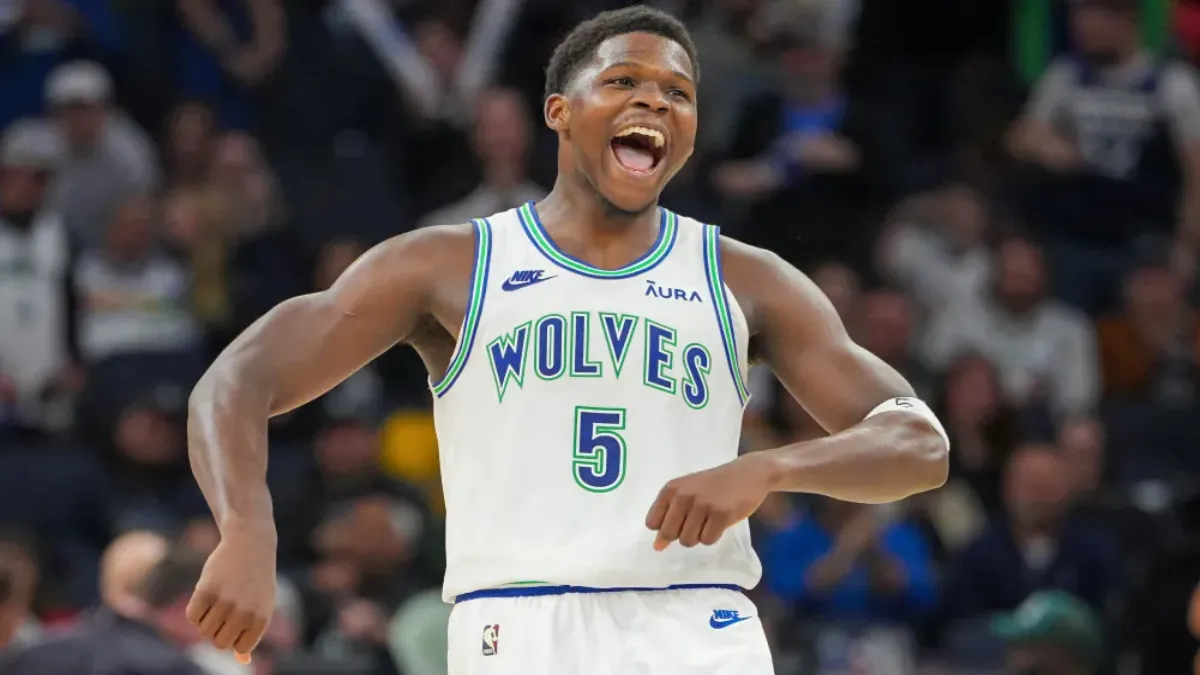In a surprising turn of events, the Minnesota Timberwolves have emerged as true contenders in the fiercely competitive Western Conference, defying critics and rewriting their narrative of mediocrity. Just a season ago, their acquisition of Rudy Gobert was widely ridiculed, but the team’s current success has silenced the skeptics, placing them at the pinnacle of the conference alongside the Oklahoma City Thunder. This article explores the key factors behind the Timberwolves’ transformation into a championship-caliber team.
The ascent of Anthony Edwards has been nothing short of spectacular. The young talent, drafted as the No. 1 overall pick in 2020, has transformed from a promising player to a bona fide superstar. With an impressive stat line averaging 25.5 points, 5.3 rebounds, and 5.2 assists per game, Edwards has proven himself capable of leading a championship-caliber team. His evolution into a true game-changer has been instrumental in the Timberwolves’ newfound success.
Critics questioned the wisdom of acquiring Rudy Gobert, citing a perceived regression in his defensive abilities. However, Gobert has silenced the naysayers by returning to his defensive prowess, anchoring the Timberwolves’ defense with a league-best 109 defensive rating. His resurgence has not only strengthened the team’s defensive identity but also positioned him as a strong contender for a fourth Defensive Player of the Year award.
Overcoming doubts about the team’s success hinging on Karl-Anthony Towns’ willingness to defer to Edwards, the veteran player has embraced a sidekick role. Despite facing trade rumors and occasional criticisms, Towns has demonstrated maturity by supporting Edwards and serving as a mentor. His ability to accept a new role has been pivotal to the team’s cohesion and success.
Championship-contending teams rely on a solid supporting cast, and the Timberwolves are no exception. Mike Conley, Jaden McDaniels, and Naz Reid have played crucial roles, each contributing unique skills and fully committing to their respective roles. Conley’s basketball IQ, McDaniels’ defensive prowess, and Reid’s tenacity provide the necessary support to elevate the team’s overall performance.
Undoubtedly, coaches play a pivotal role in a team’s success. Chris Finch, who faced criticism during the team’s struggles, deserves credit for steering the Timberwolves in the right direction. His emphasis on a defensive-minded identity and effective ego management has fostered a cohesive team environment, leading to significant improvements in the team’s performance.
As the Minnesota Timberwolves continue their impressive run atop the Western Conference, it is clear that their journey from trade criticism to championship contention is a testament to resilience, player development, and effective coaching. With a talented roster, a revitalized defensive identity, and a newfound team chemistry, the Timberwolves are poised for a memorable season and, perhaps, a shot at securing their first NBA championship.


